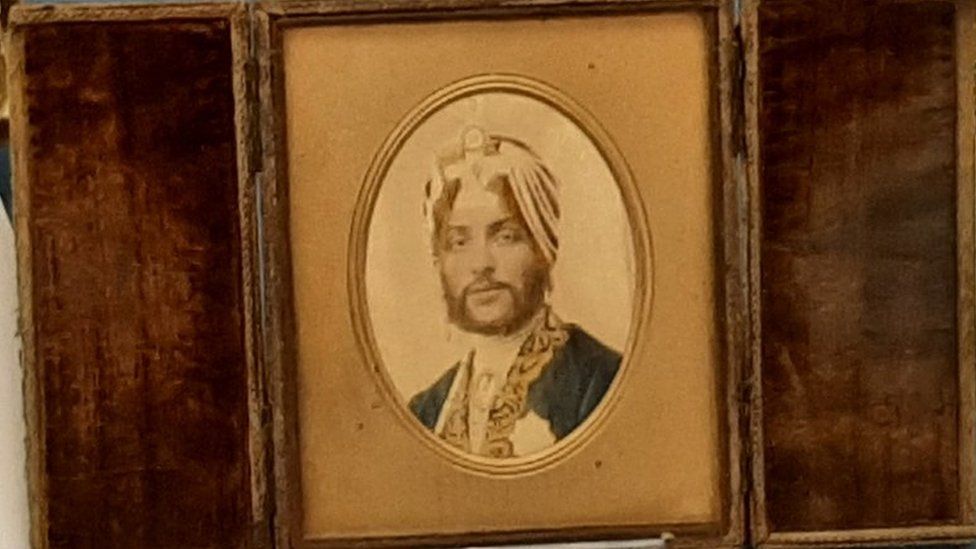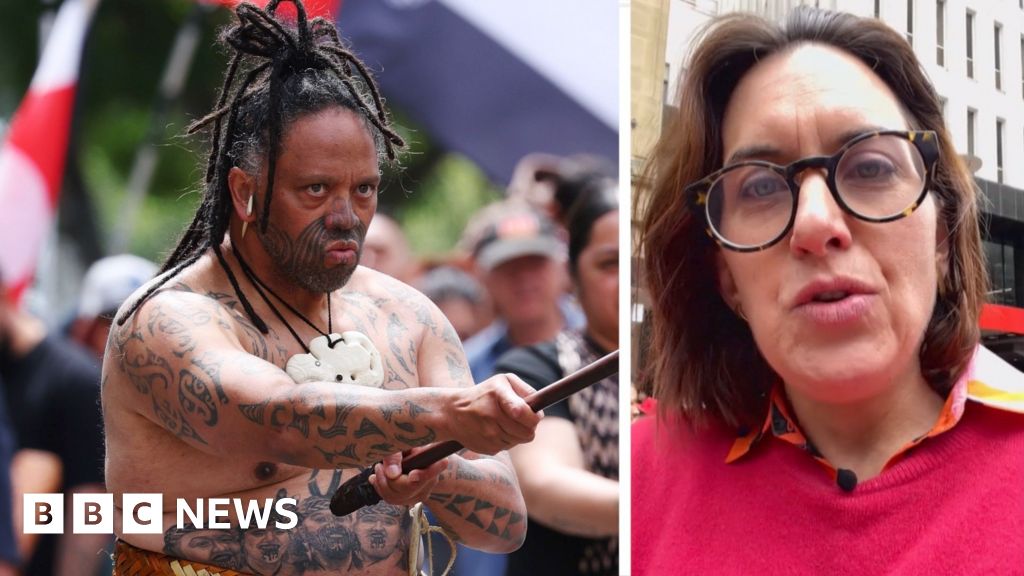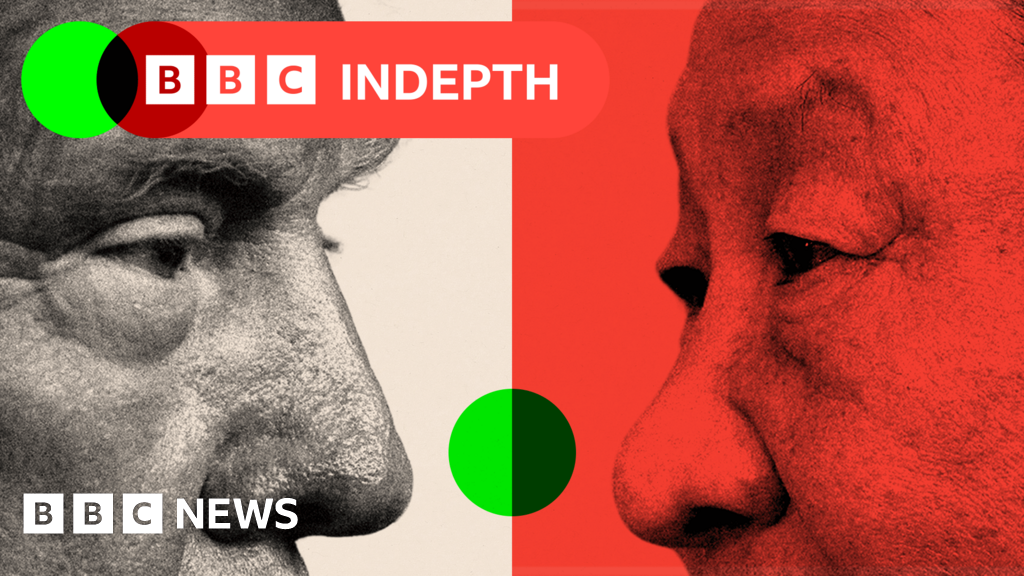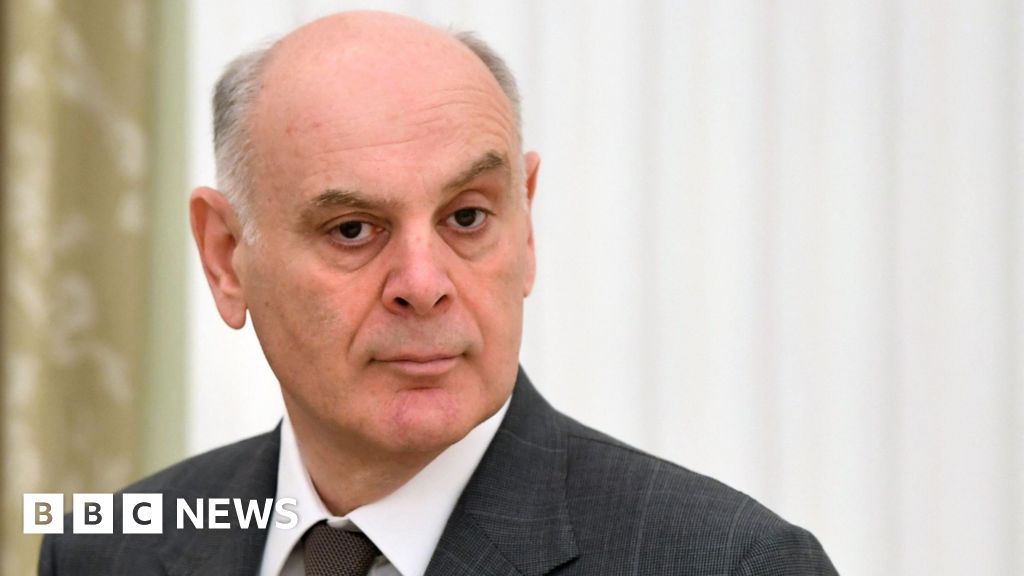ARTICLE AD BOX
 Image source, Gaggan Sabherwal
Image source, Gaggan Sabherwal
Maharajah Duleep Singh was the last ruler of the Sikh empire
By Gaggan Sabherwal
BBC News
An ongoing exhibition in the UK shines a spotlight on the remarkable life of the last Sikh emperor of the Punjab - Maharajah Duleep Singh.
Duleep Singh was the youngest son of Maharajah Ranjit Singh, who founded the Sikh empire in the Punjab in 1799.
After the deaths of his father and brother, Duleep Singh became ruler of the kingdom at the age of five, but was removed from the throne after Britain annexed the Punjab in 1849.
At the age of 15, he arrived in England and ended up spending the rest of his life in the country. Over the years, a warm friendship would develop between Britain's reigning monarch - Queen Victoria - and the former king of the Punjab.
The exhibition at the Archive Centre in Norwich offers a glimpse into this unlikely friendship. It coincides with the last Sikh emperor's 129th birth anniversary, celebrated on 22 October.
"One of my favourite items in the exhibition is a signed journal by Queen Victoria which reads: To Maharajah Duleep Singh from his affectionate friend, Victoria, Windsor Castle, March 1868," says UK-based historian and art collector Peter Bance. "This is a really intimate and personal inscription [by the Queen] referring to the former King of the Punjab as her friend,'' he adds.
Mr Bance has loaned his personal collection of memorabilia on Duleep Singh and says that this is the first time that many of these historic objects are being displayed to the public. He hopes "visitors will enjoy seeing these [objects] as much as I did discovering them".
Image source, Peter Bance Collection
Image caption,Duleep Singh married Bamba Muller in 1864 and made Elveden Hall their home
Through various artefacts, the exhibition traces the fascinating life of Duleep Singh. After the young maharajah was stripped of his sovereignty and his mother was imprisoned, he was put under the guardianship of army surgeon Sir John Spencer Login and his wife, Lady Login.
During this period, Duleep Singh began exploring Christianity and a Bible gifted by his attendant in 1850 is included in the exhibition. Also on display is a velvet jacket worn by the former emperor, shooting paraphernalia he used on hunting trips with the then Prince of Wales - later King Edward VII, as well as his photographs and letters.
Duleep Singh married Bamba Muller, daughter of a German banker, in 1864 and made Elveden Hall, a stately home in the Suffolk countryside, their family home.
The couple had six children and the exhibition has on display garments worn by his daughters, Princess Catherine, Princess Bamba and Princess Sophia. Princesses Bamba and Sophia were well-known suffragists who supported women's right to vote in the early 1900s.
A military uniform and objects belonging to Duleep Singh's second son, Prince Frederick Duleep Singh, are also part of the exhibition.
Image source, Gaggan Sabherwal
Image caption,The exhibition has on display Duleep Singh's photographs and letters
Mr Bance has been researching and collecting artefacts related to Duleep Singh and his family for over 25 years.
"I came to Norfolk with a Sikh society group from our university campus, and while we were visiting, I insisted that we stop at Maharajah Duleep Singh's grave at Elveden," he says. He also didn't know much about Duleep Singh and his legacy at the time.
While he was visiting the grave, an elderly lady informed him about a museum that was dedicated to the erstwhile ruler of the Punjab and his family. Through his research, Mr Bance learnt that the museum - the Ancient House Museum - was once a 15th Century Tudor house which Prince Frederick Duleep Singh bought in 1921 and later converted to a museum.
Three years later, he donated the museum to the local people along with a number of personal artefacts. On asking the museum's curator for books on the family, Mr Bance says he was told that "they had books on Duleep Singh but nothing on his children''.
Image source, Peter Bance Collection
Image caption,Princesses Sophia, Bamba and Catherine
To find out more about the Sikh ruler's life, Mr Bance says he placed a series of advertisements in the newspaper, asking locals to share any information they had about Duleep Singh's children.
Over the next six months, he received over 300 letters from people informing him that they either knew one of the family members or were in possession of some artefact related to them.
"I started recording these people's interviews and writing down their memories," says Mr Bance. He also began collecting artefacts, which some people gave for free, while others he had to purchase.
"I hope that this exhibition will be a springboard for the younger generation of British Indians to delve into their history and discover interesting artefacts that are out there."

 2 years ago
26
2 years ago
26








 English (US)
English (US)